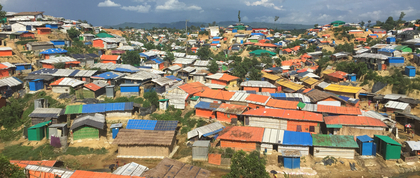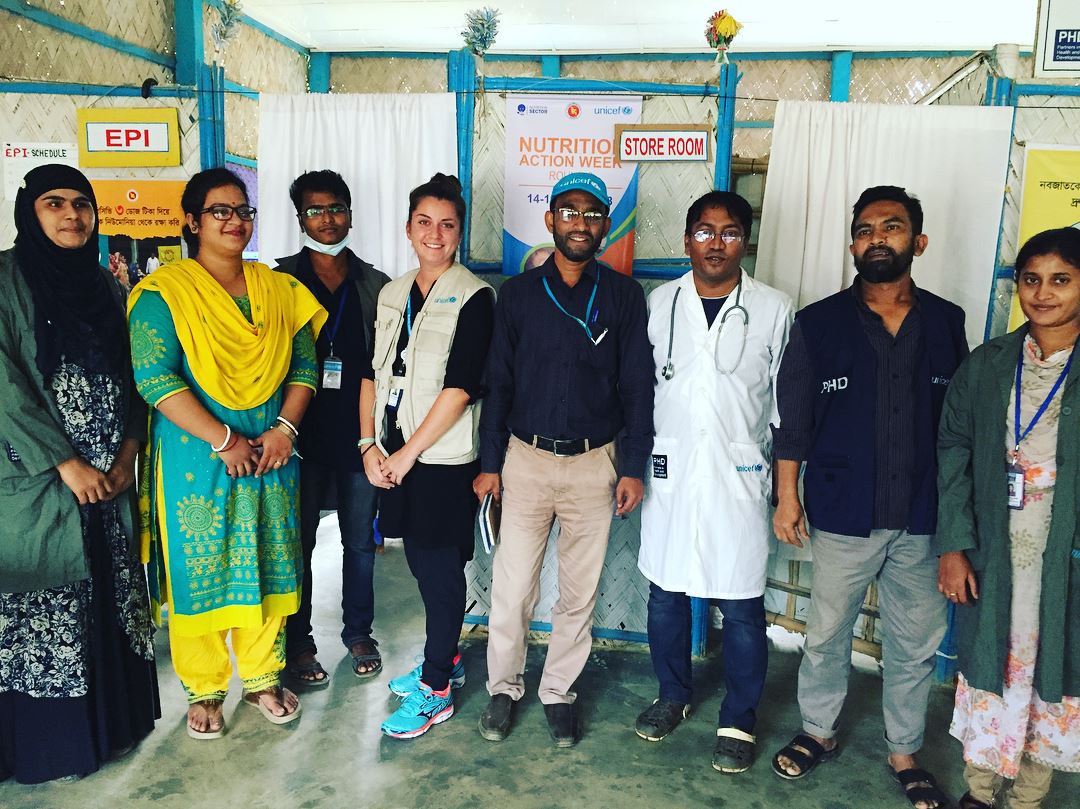
Applied Practice Experience Blog by Jessie Drescher, MPH Student
Pictured Above: Kutupalong Camp (also known as the "Mega Camp"). Photo courtesy of: Jessie Drescher.
October 3, 2018
We have been in Bangladesh for several weeks now, and the first-hand experience we are gaining from our internship is both rewarding and challenging. In the months leading up to our internship, my colleagues (Emily Holzman and Corbin Kappler) and I studied the history of the crisis in Cox’s Bazar, the culture of the Rohingya, and the efforts of UNICEF in light of the refugee crisis. We have seen the existing systems and service networks that have been stressed and strained as the displaced population has exceeded 900,000 with the latest influx of refugees. In response, all major humanitarian aid partners have been called on to help rally support and provide resources to sustain the refugees, as they wait to learn what will happen to them next.
During the first visit to the camps, I was captivated by the landscape. As I was standing on the top of the hill at Kutupalong, I could see no end to the tarp houses that make up the camp. I had a 360° picture of people in desperate conditions: living in crowded conditions on the hillsides, trapped and reliant on humanitarian aid. The experience was crippling. I struggled to fathom how any single person in this situation could be resilient in the next chapter of their life. What kind of human spirit would it take to move on from this and resume a “normal” life?
One observation I have made during my experience thus far is that it is easy to take the individual out of the equation when you are facing a humanitarian crisis of this size, especially when in it is classified as an "emergency". However, the opportunity to have intimate conversations with families has reminded me of the human side of this story. For example, I recently interviewed young Rohingya mothers who were seeking medical care for their children at the makeshift health facilities that are supported by UNICEF. In these humbling moments, I came to understand that in spite of their current circumstances, at the end of the day they are just moms –who, even in the harshest environments, are putting their children first.
These are the moments that remind me of why I chose to be a public health practitioner and am dedicated to working in global health.

Pictured Above: Jessie Drescher, who is pictured 4th from left, alongside medical staff at the Camp 4 Health Post. Photo courtesy of: Jessie Drescher.